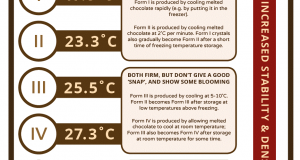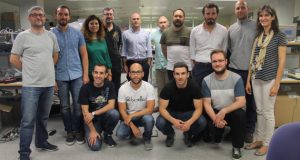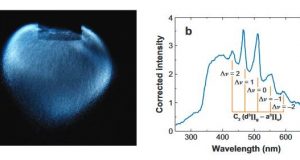Do you like chocolate? Who doesn’t! But do you know why chocolate from some places or brands is much more snappier and melts much better in the mouth than others? Yes sure ingredients and recipe are a reason but there is something beyond ingredients that makes the same cocoa butter taste much nicer! Cocoa butter is basically a collection of ...
Read More »Blog
‘Smart’ Materials – Intelligent and Responsive Materials
‘Smart’ materials are also called ‘intelligent’ and responsive materials. This is due to the property to change with their environment. In fact, smart materials react via a reversible mechanism to an external stimuli: stress, electrical current, temperature or even chemical compounds1. Those materials can be divided into several sub-groups: shape memory alloy, piezoelectric materials, magneto-rheological and electro-rheological materials. Due to ...
Read More »Enjoying Learning Chemistry
The use of truly catalytic and efficient reactions is one of the most straight way to pursue sustainable chemistry in organic synthesis. In chemistry, catalyst refers to any substance that increases the rate of the reaction without itself being consumed. This increase of the reaction´s rate happens because the catalyst lowers the activation energy required for the reaction to begin. ...
Read More »Education is a Two-way Street
PhD studies at a university offer a unique way to improve personal communication skills and engrain the fundamental knowledge of the subject so deep within the mind that it might remain there even at an age when forgetting one’s own birthday no longer comes as a surprise. Of course I’m talking about teaching. The dreadfully exhausting and time-consuming, yet strangely ...
Read More »ITACA… a route for the knowledge of microwaves
As you set out for Itaca Hope the voyage is a long one, Full of adventure, full of discovery. (translated by “Translated by Edmund Keeley/Philip Sherrard”) Why is it important to perform secondments during your PhD? Well, a PhD cannot be considered just a normal job. It is an experience of life that forced you to think on a different ...
Read More »Modular Plants
Batch plants have been the main horsepower of the fine chemical industry, where flexibility is highly appreciated. Continuous manufacturing offers better performance but it is not as flexible when compared to batch manufacturing. Modular plants represent a solution between batch and continuous processes. Modular plants are capable of working continuously and flexible enough to meet the market demand. For instance, ...
Read More »Arduino Device for Temperature Recording: A Cheap and Smart Solution for Our Lab Research! (Part 2)
After building up our device (please see 1st part), we can start writing the code (called “sketch”) for the platform. Firstly, we should download and install the software for Arduino (you can easily find it on-line at https://www.arduino.cc/en/Main/Software?). After installing the software, we can take some confidence with Arduino, for example turning on and of the LED of the Arduino ...
Read More »Arduino Device for Temperature Recording: A Cheap and Smart Solution for Our Lab Research! (Part 1)
In our daily research, we often have to fight with some practical limits. Of course, I’m not referring to the impossible overpassing of the thermodynamic principles. I’m thinking about elementary hands-on problems. For example, I’ve been working on zeolites since last years. The synthesis of zeolite involves a series of steps were the regulation of the temperature is of great ...
Read More »Sound Creating Light: Sonoluminescence
Collapsing of the rapid and nearly adiabatic small bubble driven by a standing ultrasound heats inside the bubble up and produces enormous energy. This energy is able to initiate the chemical reactions (sonochemistry) and to emit light (sonoluminescence). Spectroscopic measurements reveal that collapsing of a bubble leads to high temperatures (>5000 K) and high pressures (>1000 bar) [1]. Sonoluminescence was ...
Read More »Patent: “It Is Not The Right To Do, It Is The Right To Forbid”
In a previous blog, Ana Luisa Maria wrote about the synergy between industry and academia. She mentioned that the dissemination of results in industry is usually done through patents. Indeed, she is right to say that patents prevail over scientific publications, like papers, in the industry. However, the goal of a patent is not the dissemination of results. A patent ...
Read More »










